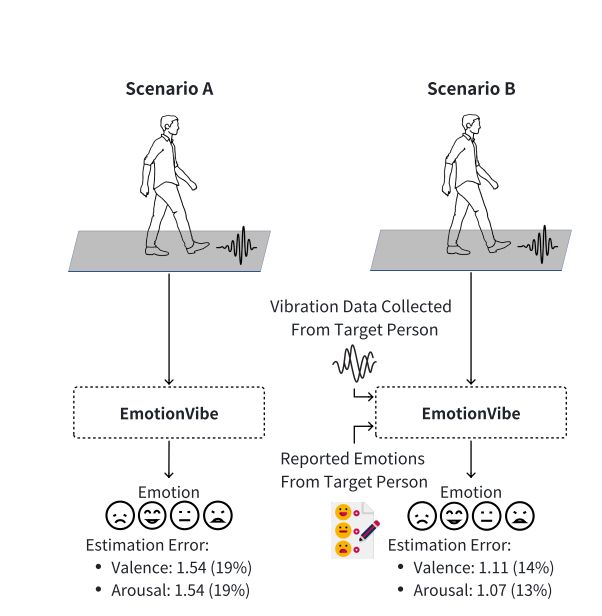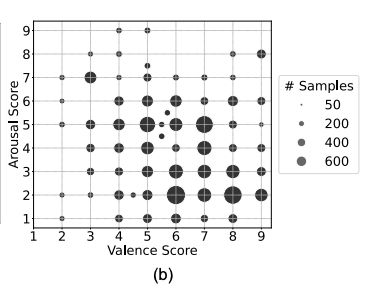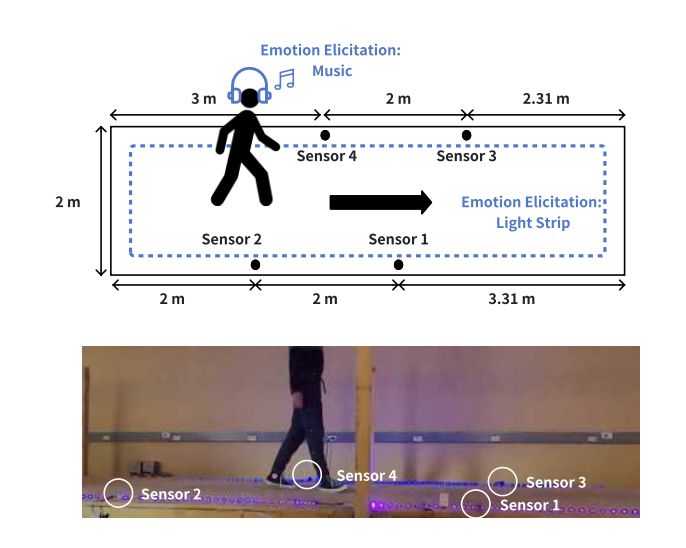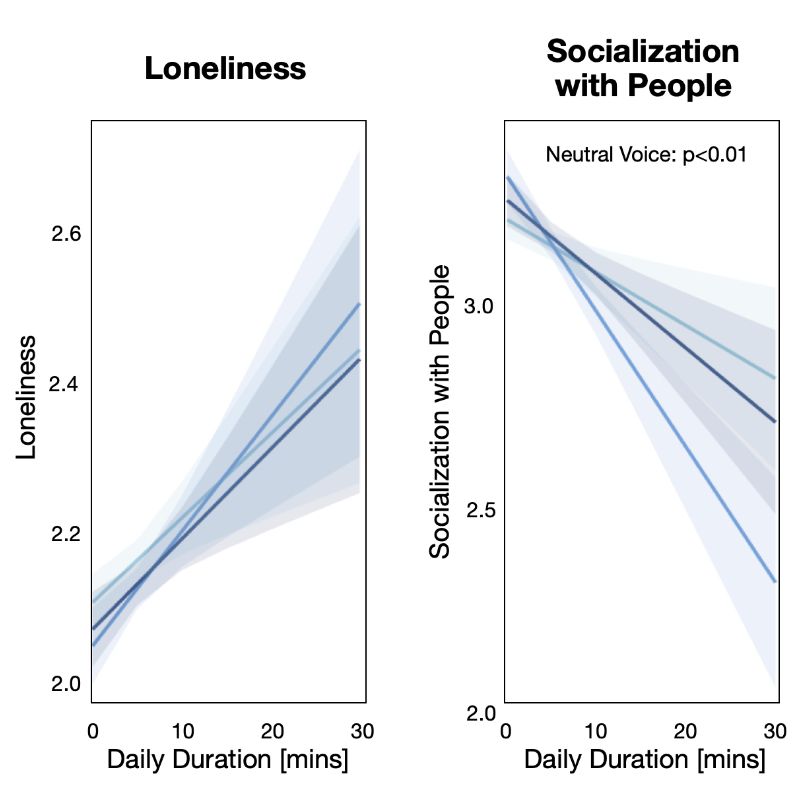Amit Goldenberg
@amit-goldenberg.bsky.social
I study emotions, collectives, technology and their interaction. Harvard Business School | Harvard Psych (affiliated) | D3
Totally agree. So much information.
April 1, 2025 at 3:07 PM
Totally agree. So much information.
So to conclude, we can definitely predict something from the way people walk. Arousal (calm to excited)? Much more likely! Valence – I would need better proof. But this is a good start.
arxiv.org/pdf/2503.04190
arxiv.org/pdf/2503.04190
arxiv.org
April 1, 2025 at 2:41 PM
So to conclude, we can definitely predict something from the way people walk. Arousal (calm to excited)? Much more likely! Valence – I would need better proof. But this is a good start.
arxiv.org/pdf/2503.04190
arxiv.org/pdf/2503.04190
The mean absolute error of the model after training was 1.11, which means the model was off by about one point on average. This is not bad, or even surprisingly good, especially given that valence results were restricted to a pretty narrow range, but can we predict valence? Not sure.

April 1, 2025 at 2:41 PM
The mean absolute error of the model after training was 1.11, which means the model was off by about one point on average. This is not bad, or even surprisingly good, especially given that valence results were restricted to a pretty narrow range, but can we predict valence? Not sure.
As for the results – it's unclear whether the music impacted emotions in the expected direction (not reported in the paper). One thing is clear: the valence scale – which ranged from very negative -1 to very positive 9 – had valence results mostly between 3 and 9, so no strong negative valence.

April 1, 2025 at 2:41 PM
As for the results – it's unclear whether the music impacted emotions in the expected direction (not reported in the paper). One thing is clear: the valence scale – which ranged from very negative -1 to very positive 9 – had valence results mostly between 3 and 9, so no strong negative valence.
You can already imagine one major issue with the design, which is that different types of music may lead people to walk differently regardless of their emotional state. So are we predicting what music people heard? Or what they felt?
April 1, 2025 at 2:41 PM
You can already imagine one major issue with the design, which is that different types of music may lead people to walk differently regardless of their emotional state. So are we predicting what music people heard? Or what they felt?
The paper asked 20 people to walk while listening to music that was previously validated to elicit different emotions. For example, to elicit high-arousal negative emotions (akin to anger or fear), participants heard music from Dracula or high-wire stunts and lighting was red/yellow shining.

April 1, 2025 at 2:41 PM
The paper asked 20 people to walk while listening to music that was previously validated to elicit different emotions. For example, to elicit high-arousal negative emotions (akin to anger or fear), participants heard music from Dracula or high-wire stunts and lighting was red/yellow shining.
wow! Thanks for sharing!!
March 28, 2025 at 4:38 PM
wow! Thanks for sharing!!
These results are consistent with other companion studies that suggest the story of using AI as a companion is a story of access—people who don't have access to human friends are more likely to use AI as a substitute.
March 24, 2025 at 1:29 AM
These results are consistent with other companion studies that suggest the story of using AI as a companion is a story of access—people who don't have access to human friends are more likely to use AI as a substitute.
What was more interesting to me is the correlation between use time and loneliness. Higher use time was positively associated with loneliness. This is very likely driven by the fact that lonelier people are just more likely to spend more time with the chat.

March 24, 2025 at 1:29 AM
What was more interesting to me is the correlation between use time and loneliness. Higher use time was positively associated with loneliness. This is very likely driven by the fact that lonelier people are just more likely to spend more time with the chat.
Having worked on these topics for years, I also find it highly unlikely that spending 5.32 minutes on average per day talking to ChatGPT would lead to a reduction in loneliness. Loneliness is really hard to change.
March 24, 2025 at 1:29 AM
Having worked on these topics for years, I also find it highly unlikely that spending 5.32 minutes on average per day talking to ChatGPT would lead to a reduction in loneliness. Loneliness is really hard to change.
Across all conditions (but with no control group that didn’t use ChatGPT), the authors report a reduction in loneliness over time. This, as the authors admit, basically means nothing because there was no control condition and this could just be the effect of time.
March 24, 2025 at 1:29 AM
Across all conditions (but with no control group that didn’t use ChatGPT), the authors report a reduction in loneliness over time. This, as the authors admit, basically means nothing because there was no control condition and this could just be the effect of time.
The RCT (where people were asked to use ChatGPT for 5 minutes a day, at least 4 days a week, for a total of 4 weeks) is disappointing. First, there was no control group, but rather a SUPER complicated (3x3) design of different types of use.
March 24, 2025 at 1:29 AM
The RCT (where people were asked to use ChatGPT for 5 minutes a day, at least 4 days a week, for a total of 4 weeks) is disappointing. First, there was no control group, but rather a SUPER complicated (3x3) design of different types of use.

